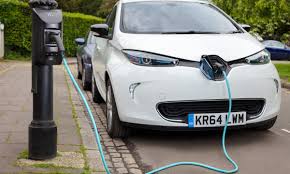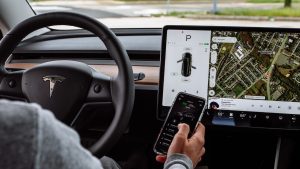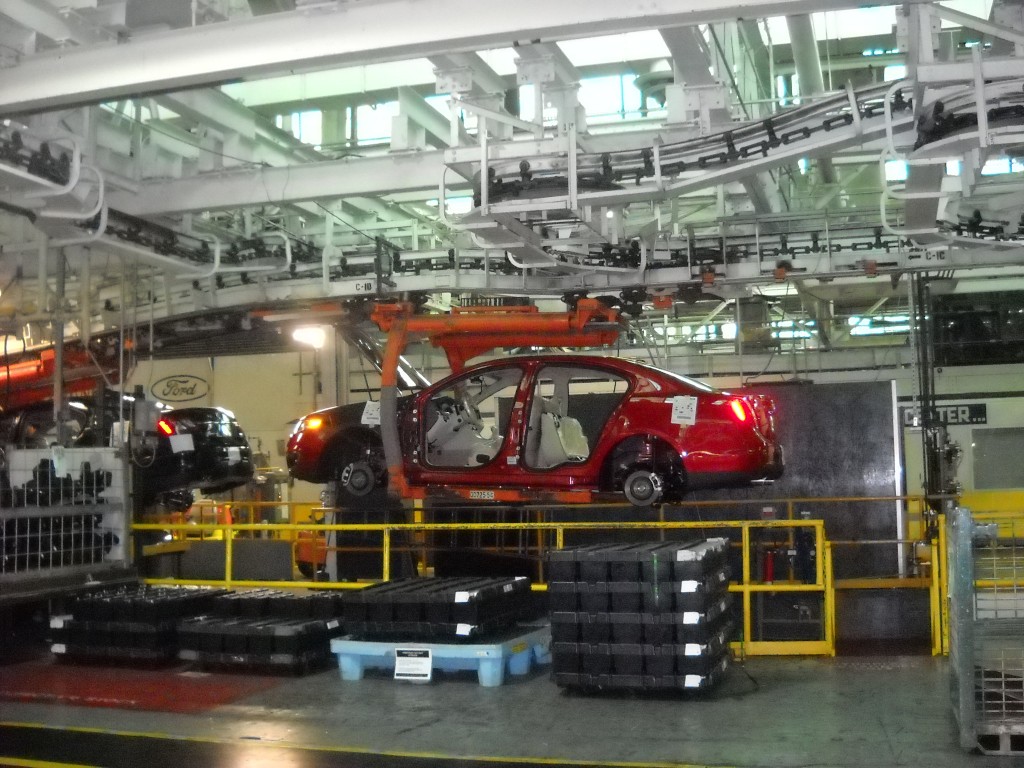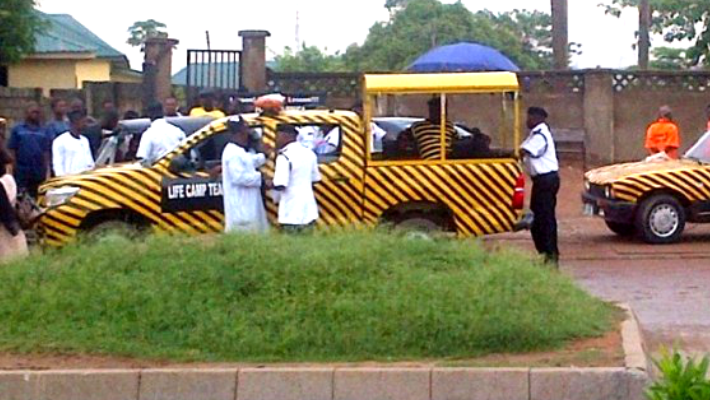Auto
When is it right to buy an electric car?

Are you considering buying an electric car? That’s great. Recent advances in battery technology have shown that going electric is a realistic proposition for an increasing number of people.
Many nations have given between 2030 and 2040 as dates to phase out petrol and diesel-propelled automobiles and fully go electric.
Nigeria may not have given its exit date yet but it has embraced electric vehicle scheme.
But before you make up your mind on the EV project, you may need to look at the pros and cons.
Auto experts say the pros are beginning to outweigh the cons when it comes to justifying an electric car. But they also warn that these vehicles are not suitable for everyone yet.
Here is a list of the pros and cons of an electric car prepared by Motoring Electric, so you can decide if the time is right to ditch petrol or diesel.
The pros of an electric car
Zero emissions
All electric cars offer zero tailpipe emissions, which is great for local air quality and the planet.
While energy is required to build a car, and electricity is used to recharge the batteries, the latest research shows electric cars are less emission-intensive than their fossil fuel counterparts.
Lower running costs
An electric car should be cheaper to run than the petrol or diesel equivalent. There are a number of online tools that allow you to calculate how much it will cost to run an electric vehicle, with the option to select your home electricity tariff and car.
One such tool can be found on the EDF Energy website.
A typical petrol or diesel car costs around 12p per mile, so the cost for driving the same distance (230 miles) would be £27.60. That’s a saving of £23.44 in the Renault Zoe.
No Vehicle Excise Duty (VED)
Most electric cars are exempt from paying Vehicle Excise Duty (VED).
Electric car technology
Manufacturers are investing heavily in electric cars, so you could have access to technology absent from other vehicles. For example, it might be possible to pre-heat the car’s cabin from your smartphone, which will be handy on a cold morning. Buy a Tesla Model 3 and you’ll be able to play games and make fart noises via the touchscreen.
Performance
All electric cars offer smooth and immediate acceleration. As a result, they feel particularly rapid in towns and cities, offering an almost comical level of off-the-line pace.
Take the Tesla Model S, which can sprint to 60mph in just 2.4 seconds – quick enough to leave most supercars for dead.
Even the more affordable electric cars feel rapid, with the Vauxhall Corsa-e able to hit 60mph in 7.6 seconds.
Quietness of an electric car
Once you’ve experienced the near-silent serenity of an electric car, you’ll find it hard to return to the noise of a petrol or diesel engine.
It’s not 100 per cent quiet – you still get wind, tyre and road noise – but an electric car is far more relaxing to drive.
Government incentives
Some governments will pay you to drive an electric car. Availability of the Plug-in Car Grant has been extended to 2022-23, as the government prepares for the phasing out of new petrol, diesel and hybrid vehicles.
Cheaper to maintain
With fewer moving parts, an electric car is cheaper to maintain than a petrol or diesel vehicle. You can kiss goodbye to oil changes, spark plugs, belt changes, coolant changes, air filters and transmission oil changes.
However, you’ll still need to visit a garage for tyres, brakes, lights, wipers, tracking, suspension and cabin filtration.
Access to towns and cities
The introduction of Clean Air Zones (CAZ) signals a new era of penalties for driving a polluting vehicle in a town or city.
At the very least, electric cars will be exempt from payment, but you could find that electric cars are the only vehicles welcome in urban environments.
Feel good factor
There is also the feel good factor of doing your bit for the environment. By driving an electric car, you’ll be helping to improve local air quality, which will do wonders for your image.

The cons of an electric car
Charging points
This is more the perception than the reality, because there are around 35,000 charging connectors in the UK, for instance.
The government wants to ensure that nobody is further than 30 miles from a rapid charging station by 2025.
However, there’s no doubt that some areas of the country aren’t as well served as cities like London, Birmingham and Manchester.
But the network is growing all the time, with many supermarkets and the big charging networks at the forefront of the, ahem, charge.
The same cannot be said of countries like Nigeria just catching the bug. Indeed, electricity generation and supply remain a major issue in the country for businesses and homes.
There is also the issue of arriving at a charging point to find that it is already in use or out of operation. If there’s somebody at a petrol pump, you’ll have to wait a few minutes. If you can’t charge an electric car, you could be left stranded.
Charging time
Charging an electric car will take longer than filling a petrol or diesel car with fuel. Although some EVs can be recharged to 80 per cent in as little as 20 minutes using a rapid charger, you should allow up to an hour.
If you’re charging at home using a domestic socket, an overnight charge is the most realistic option. A full charge using a 3kW unit could take between six and 12 hours.
It requires a change in mindset. In the same way people have become accustomed to charging a smartphone, you will need to do the same with an electric car. If you charge a car overnight, you’ll wake up with a fully charged battery. Alternatively, you could leave the car on charge while you’re at work.
Electric car range anxiety
Some people struggle to come to terms with range anxiety. This is the fear of not reaching your destination without charging up. If you worry when your smartphone battery drops below 60 percent, you might struggle with an electric car.
As battery technology advances, range concerns are likely to become a thing of the past. Typically, you can expect between 150 and 250 miles from a new electric car, but others offer up to 350 miles.
Not strictly zero emissions
Even the most ardent supporter of electric cars would have to concede that they’re only zero emissions at the point of use.
A great deal of energy is consumed during the manufacturing of the car, and there’s also the issue of the electricity used during the charging process.
However, if the electricity is sourced using renewable sources (such as wind, hydro and solar), the case against electric cars is reduced. Last year, more of Britain’s electricity production came from zero carbon energy sources than fossil fuels. It’s the first time this has happened since the Industrial Revolution.
Electric car cost
For the time being at least, electric cars are rather expensive. Your cheapest options tend to be electric versions based on the architecture of conventional cars, such as the Seat Mii Electric and Skoda Citigo eiV.
At around £30,000 (before the grant), the Vauxhall Corsa-e is almost twice the price of the entry-level Corsa. Sure, the electric Corsa is better equipped and offers lower running costs, but the screen price remains high.
It’s a similar story with the Hyundai Kona Electric, which, at £29,500, is £12,000 more expensive than a basic Kona, and around £3,000 more than the flagship Kona Premium GT.
Once you get into the realms of Audi, Mercedes-Benz, Jaguar and Porsche, all-electric motoring gets very expensive.
Dynamics
Finally, although they are very quick and wonderfully quiet, most electric cars cannot hold a candle to conventional cars when it comes to driving pleasure. They’re simply too heavy to feel light and agile when cornering, while the weight of the batteries can make for a rather lumpy ride.
There are exceptions to the rule. The Porsche Taycan is every bit as good as other cars in the Porsche range, while the Tesla Model 3 is a very capable all-rounder.

Auto
MOMAN, ALCMAN Partner BKG to Drive Nigeria’s Shift from Auto Imports to Industrial Production

MOMAN, ALCMAN Partner BKG to Drive Nigeria’s Shift from Auto Imports to Industrial Production
In what industry stakeholders view as a decisive move toward industrial rebirth, BKG Exhibitions Limited has entered into a strategic partnership with the Motorcycle Manufacturers Association of Nigeria (MOMAN) and the Automotive Local Content Manufacturers Association of Nigeria (ALCMAN) to accelerate local automotive manufacturing and reduce the country’s heavy reliance on imports.
The alliance, formalised in Lagos, signals a coordinated private-sector effort to reposition Nigeria’s automotive ecosystem from an import-dependent market to a production-driven industrial base capable of delivering value addition, technology transfer, and large-scale employment.
For decades, Nigeria’s automotive sector has been dominated by the importation of fully built vehicles and, more recently, the assembly of semi-knocked-down (SKD) and completely knocked-down (CKD) kits.
While these models generated commercial activity, stakeholders argue they failed to build deep industrial capacity or strengthen indigenous engineering expertise.
The new partnership seeks to change that narrative by transforming trade exhibitions into structured industrial platforms that connect manufacturers with policymakers, institutional buyers, investors, and international technical partners.
A senior executive at BKG Exhibitions said the collaboration represents a deliberate shift in strategy.
“Exhibitions must go beyond passive marketplaces. They must become engines of economic transformation where Nigerian manufacturers secure contracts, attract capital, and demonstrate production competence,” he said, noting that Nigeria already possesses strong demand but lacks a coordinated ecosystem to convert that demand into domestic output.
“Nigeria remains one of Africa’s largest mobility markets, driven by rapid urbanisation, a growing youth population, and expanding last-mile logistics services.
“Motorcycles and tricycles play a critical role in urban transport, agriculture distribution, and the fast-growing delivery economy.
“However, a substantial portion of these vehicles and their components are imported, placing pressure on foreign exchange and limiting domestic industrial growth.”
MOMAN President Rev. Lambert Ekewuba emphasized that strengthening local production would go beyond import substitution.
“When we manufacture locally, we create jobs, retain capital, and build the technical foundation for advanced automotive engineering,” he said.
ALCMAN Chairman, Chief Anselm Ilekuba, stressed the importance of developing a resilient components ecosystem, describing it as the backbone of any successful automotive industry.
“No country becomes an automotive powerhouse without first nurturing strong supplier networks. Nigeria must empower small and medium-scale enterprises producing metal parts, plastics, electrical systems, and other inputs,” he said.
Under the alliance, future exhibitions will feature dedicated pavilions showcasing Nigerian-made components and vehicles, offering manufacturers direct access to government agencies, transport operators, and regional distributors.
Analysts believe such curated exposure could gradually shift procurement patterns toward locally produced alternatives.
Beyond the domestic market, the partnership aims to position Nigeria as a manufacturing hub serving West and Central Africa, leveraging opportunities under the African Continental Free Trade Area (AfCFTA).
Industry leaders say expanding export capacity will depend on strengthening standards, financing mechanisms, and technical capability.
The alliance also plans coordinated advocacy for policies that support localisation, including improved access to financing, reduced duties on industrial machinery, technical training aligned with modern production systems, and procurement frameworks favouring locally manufactured goods.
Economists argue that a revitalised automotive manufacturing base could stimulate growth across steel, petrochemicals, logistics, warehousing, and tooling industries, reinforcing the sector’s role as a catalyst for broader industrialisation.
Coming at a time when Nigeria is intensifying efforts to diversify its economy away from oil dependence, stakeholders say the success of this alliance could mark a turning point — shifting the country from being one of Africa’s largest automotive consumption markets to an emerging centre of production, innovation, and regional trade.
Auto
Appeal Court Ruling on VIO Limited to Abuja, Not Lagos — LASG

Appeal Court Ruling on VIO Limited to Abuja, Not Lagos — LASG
The Lagos State Government has dismissed widespread claims that a recent Court of Appeal judgment has stripped Vehicle Inspection Officers (VIOs) of their powers across Nigeria, insisting that the ruling applies strictly to the Federal Capital Territory (FCT).
The clarification follows public reactions to a decision of the Court of Appeal, Abuja Division, which upheld an earlier ruling of the Federal High Court restraining Vehicle Inspection Officers and the Directorate of Road Traffic Services in the FCT from stopping motorists, impounding vehicles, or imposing fines.
The judgment triggered viral interpretations suggesting that VIO operations had been outlawed nationwide.
However, Lagos State Attorney-General and Commissioner for Justice, Lawal Pedro, SAN, described such interpretations as legally inaccurate and misleading.
Basis of the Court Decision
According to Pedro, both the Federal High Court and the Court of Appeal premised their decisions on the absence of statutory authority empowering VIO officials in the FCT to stop, impound, confiscate vehicles, or impose fines on motorists.
READ ALSO:
- Terror in Lagos Traffic: Cutlass Gang Unleashes Mayhem on Mile 12–Ketu Road
- FG Drags El-Rufai to Court Over Alleged NSA Phone Interception
- Mystery in Lekki: Police Probe Death of Two Nollywood Crew Found Lifeless in Parked Car
“It is important to understand that the Honourable Judge of the Federal High Court and Justices of the Court of Appeal premised their decision on absence of statutory power conferred on the Respondents to stop, impound or confiscate vehicles and/or impose fines on motorists on roads in FCT Abuja,” he stated.
He noted that the courts did not declare vehicle inspection enforcement unconstitutional in Nigeria, but rather ruled specifically on the legal framework governing the FCT authorities involved in the suit.
Why Lagos Is Different
The Lagos government stressed that Nigeria’s federal structure allows states to legislate on residual matters such as road traffic management and vehicle inspection.
Pedro explained that Lagos operates under the Lagos State Transport Sector Reform Law, which expressly establishes and empowers the Vehicle Inspection Service (VIS).
Section 12(1) of the law authorises the VIS to:
Inspect and regulate the roadworthiness of vehicles
Conduct pre-registration inspections
Issue Road Worthiness Certificates
Collaborate with other relevant agencies to enforce traffic laws
In addition, Section 23(1) provides for penalties against offenders, subject to adjudication before mobile or magistrate courts, ensuring judicial oversight.
Not of Nationwide Effect
While acknowledging that the appellate decision is binding within the FCT, the Lagos government emphasised that it does not have automatic nationwide application.
“The judgment, though binding, is not of general application or of nationwide effect in Nigeria,” the ministry stated.
The state government stressed that VIS officers in Lagos remain legally empowered to carry out enforcement duties under extant state laws.
Wider Implications
The controversy underscores ongoing debates over traffic enforcement powers in Nigeria, particularly the constitutional boundaries between federal and state authorities.
Legal analysts note that unless the Supreme Court delivers a broader pronouncement on the issue, enforcement powers will continue to depend largely on the specific statutory framework establishing such agencies in each jurisdiction.
For now, Lagos authorities insist that vehicle inspection and traffic enforcement operations in the state remain valid and legally grounded.

Appeal Court Ruling on VIO Limited to Abuja, Not Lagos — LASG
Auto
Chanrai Storms Nigeria’s Gas Market, Unveils High-Capacity CNG, LNG Solutions to Power Energy Shift

Chanrai Storms Nigeria’s Gas Market, Unveils High-Capacity CNG, LNG Solutions to Power Energy Shift
By Rasheed Bisiriyu
Nigeria’s drive towards cleaner and more affordable transport fuel gathered fresh momentum on Friday as Chanrai Nigeria Limited formally entered the country’s gas distribution space, unveiling high-capacity CNG and LNG compression technologies in Lagos.
The company, a member of the globally diversified Kewalram Chanrai Group, announced a strategic partnership with India’s Tulip Compression to roll out advanced compressor packages and integrated “single window” CNG solutions aimed at accelerating the Federal Government’s Presidential CNG Initiative.
Chief Operating Officer of Chanrai Nigeria Limited, Anil Sahgal, described the Tulip CNG Compressor Packages as a “game-changer” for Nigeria’s evolving energy landscape.
“With our commitment to safety, efficiency and OEM-grade partnership, we’re empowering the nation to achieve its CNG ambitions while driving economic growth and environmental sustainability,” Sahgal said.
The move marks Chanrai’s expansion beyond its traditional business interests — which span automobiles, agro-products, healthcare and fast-moving consumer goods — into the fast-growing gas infrastructure segment, as fleet operators and industrial users increasingly seek alternatives to petrol and diesel.
Under the partnership, Chanrai Nigeria and Tulip Compression will deliver Compression Station on Single Window (CssW) solutions — integrating compressors, dispensers, storage and stainless-steel tubing under one brand — to simplify deployment and reduce installation timelines.
The compressor packages come in a wide capacity range, from 250 to 4,500 standard cubic metres per hour, making them suitable for small refuelling stations as well as large gas hubs.
A 1,400 SCMH gas engine-driven booster compressor is designed to refuel heavy-duty CNG trucks in about 20 minutes by drawing gas from tube trailers.
The systems are available in both electric motor-driven and gas engine-driven configurations, eliminating the need for large gas generators while ensuring energy efficiency and lower life-cycle costs.
According to the company, the equipment features dual-chamber leak-proof safety systems, advanced sealing technology to eliminate gas loss and global certifications including ATEX, CE, BIS and SGS standards.
The unveiling underscores the growing private sector response to government reforms encouraging gas adoption as a cost-effective and environmentally friendly alternative fuel.
With the compressor packages now available for immediate orders, Chanrai Nigeria said it would provide 24/7 after-sales support, operations and maintenance services, as well as remote asset monitoring solutions.
The development signals intensifying investment in CNG infrastructure as Nigeria seeks to deepen local gas utilisation, reduce fuel import dependence and cushion consumers from volatile petrol prices.
-

 Politics1 day ago
Politics1 day agoPeter Obi Launches ‘Village Boys Movement’ to Rival Tinubu’s City Boys Ahead of 2027
-

 International2 days ago
International2 days agoCanada Opens New Express Entry Draw for Nigerian Workers, Others
-

 News2 days ago
News2 days agoPolice to Arrest TikToker Mirabel After She Recants False Rape Claim
-

 International2 days ago
International2 days agoEpstein, Ex-Israeli PM Named in Alleged Profiteering From Boko Haram Crisis
-

 metro2 days ago
metro2 days agoOsun Awards 55.6km Iwo–Osogbo–Ibadan Road Project to Three Contractors
-

 Politics2 days ago
Politics2 days agoUpdated: Rivers Senator Mpigi Barinada dies at 64
-

 metro2 days ago
metro2 days agoOndo Monarch Killed as Bandits Strike Akure North
-

 Education1 day ago
Education1 day agoOgun Gov Rewards Nigeria’s Best Primary School Teacher with Car, Bungalow






You must be logged in to post a comment Login